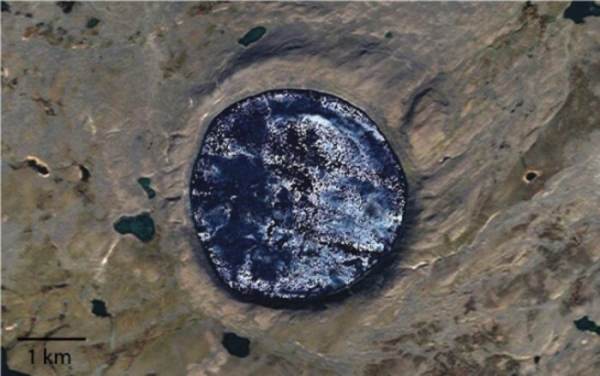Lakes are bodies of water fed by rainfall, snowmelt, rivers and groundwater, through which, Earth is teeming with life. Lakes also contain critical geologic records of past climates. Though Mars is a frozen desert today, scientists have shown that Mars contains evidence of ancient lakes that existed billions of years ago, which could contain evidence for ancient life and climate conditions on the red planet. Through a meta-analysis of years of satellite data that shows evidence for lakes on Mars, Dr Joseph MICHALSKI, a geologist in the Department of Earth Sciences, The University of Hong Kong (HKU) proposed that scientists might have dramatically underestimated the number of ancient Martian lakes that once existed.
Michalski and the international team recently published their results in Nature Astronomy, which describe a global analysis of ancient Martian lakes. “We know of approximately 500 ancient lakes deposited on Mars, but nearly all the lakes we know about are larger than 100 km2,” explains Michalski. “But on Earth, 70% of the lakes are smaller than this size, occurring in cold environments where glaciers have retreated. These small-sized lakes are difficult to identify on Mars by satellite remote sensing, but many small lakes probably did exist. It is likely that at least 70% of Martian lakes have yet to be discovered.” Scientists monitor these small lakes on Earth in order to understand climate change. The missing small lakes on Mars might also contain critical information about past climates.
The recent paper also reports that most known Martian lakes date to a period 3,500 to 4,000 million years ago, but each of the lakes might have lasted only a geologically short time (10,000 to 100,000 years) during this time span. This means that ancient Mars was probably mostly cold and dry as well, but it warmed episodically for short periods of time. Michalski adds, “Because of the lower gravity on Mars and the pervasive, fine-grained soil, lakes on Mars would have been very murky and might not have allowed light to penetrate very deeply, which could present a challenge to photosynthetic life, if it existed.”
Read more at The University of Hong Kong
Image: Pingualuit crater lake in Canada is a modern-day example of a cold impact crater-hosted lake on Earth analogous to ancient crater lakes on Mars. (Credit: Google Earth)


